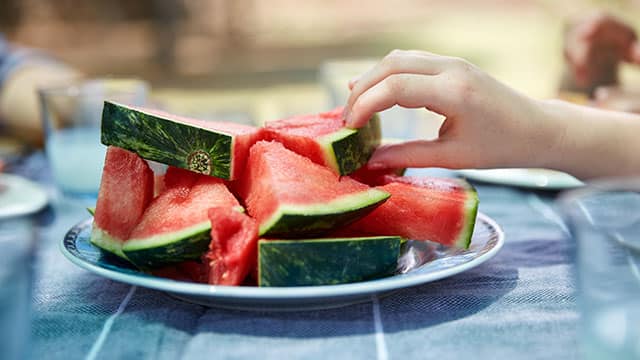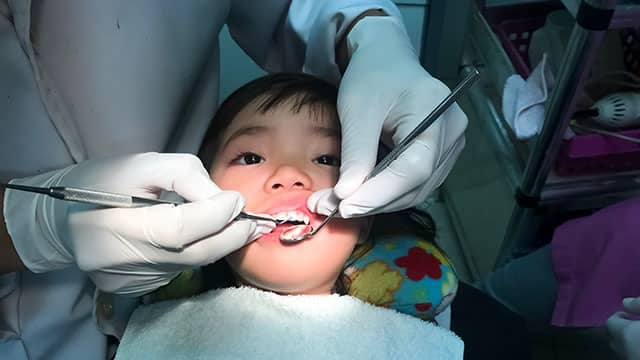Painful and potentially debilitating, mucositis is the inflammation of the tissues lining the inside of the mouth – which is part of your mucosa membrane. According to research published in the journal Translational Oncology, mucositis occurs in 40 percent of all people receiving chemo and up to 100 percent in people getting treatment for neck and head cancers.
Fortunately, with some oral care and other measures, you or a loved one can get some relief from the pain and discomfort of mucositis. Knowing how mucositis develops, its symptoms, and its potential health hazards can help you recognize when you need to treat and manage the condition.
Mucositis: Causes and Symptoms
Chemotherapy drugs attack cancer cells, but they can also attack healthy cells in the body. Chemo, unfortunately, doesn't make the distinction between the cells – nor does radiation therapy.
Among the healthy cells, anticancer therapies can inadvertently attack are the ones making up your mouth's lining. The tissue becomes vulnerable to mucositis ulceration or infection when these cells are targeted, says The Oral Cancer Foundation. Also, weakened immune systems are especially fertile for reducing your body's resistance to fight off mucositis.
Mucositis usually appears five to 10 days after chemotherapy treatment begins. Symptoms include:
- Red, swollen, or sore mouth
- Mouth sores – sometimes called mouth ulcers or lesions.
- Bleeding mouth
- Patches of white pus in your mouth
- Increased mouth mucus and thicker saliva
Other tissues inside your mouth, like your gums or tongue, might be affected, as well.
These symptoms can make eating painful, and you might have trouble swallowing or talking. Mucositis can also produce an intolerance for food and drink, which can lead to malnutrition and dehydration.
Additionally, be aware of a form of mucositis, lichenoid mucositis, which has similar symptoms but no known direct cause.
Mucositis: Management and Treatment Options
Before you start an anticancer therapy or a procedure that might weaken your immune system, consult your dentist for ways to help manage and treat mucositis symptoms – as well as reduce your risks for developing a more severe form of mucositis. Your dental professional might suggest some home therapies or medications for oral mucositis treatments.
Home Remedies for Oral Mucositis
Ice Chips: Sucking – not chewing – on ice chips immediately before and after each treatment session since this might protect your tissues. (For some flavor, you can suck on frozen fruit.)
Saltwater Rinses: Adding saltwater rinses to your daily oral care routine might also help prevent or reduce mucositis' severity.
Dietary Changes: Spicy, salty, acidic, caffeinated, dry, or hot foods can irritate your sore tissues, so it's best to avoid them.
The Stanford Cancer Center recommends such soft, non-irritating foods as milkshakes, smoothies, puddings, oatmeal, pasta, and mashed potatoes. High-protein soft foods, like yogurt, are particularly good food choices.
Seedless, high-water fruits are recommended, and pureeing foods such as vegetables and fruits can also make them easier to eat.
Foods slathered in olive or canola oil can also help you consume small bites by providing some slipperiness.
Beverage Choices: Stay hydrated by increasing your fluid intake, especially by drinking more water. Decaffeinated warm tea can be a comforting drink. Avoid caffeinated beverages and alcohol.
Oral care: Avoiding alcohol also applies to your mouthwash, so find an alcohol-free product.
It's important to your overall health to maintain an oral health care routine. Gently brush your teeth after each meal or snack using a mild, fluoridated toothpaste and a soft-bristle toothbrush. As gentle as possible, floss your teeth at least once a day.
Avoid putting any tobacco products anywhere near your mouth – i.e., don't smoke or chew.
One more thing: Your dentist might suggest a solution known as magic mouthwash, which includes a mixture of over-the-counter or prescription anesthetic, antacid, antibiotic, antihistamine, or antifungal ingredients. (With this mix, you can see why it's also called magic mud.)
Medications for Mucositis Treatment
If home remedies aren't enough to ease your pain and discomfort, your dentist might prescribe medication. These include:
- Mouthwash containing a numbing agent to help numb the inside of your mouth
- Topical anesthetics in gel or spray form to numb sore areas of your mouth
- Benzydamine or corticosteroids to help with mouth pain
- Mucosal protectants to coat your mouth lining and protect your nerve endings
- If necessary, prescriptions for stronger pain medications.
If you're undergoing chemo that targets your neck or head, seek a dentist specializing in cancer care to get additional guidance. And ask your oncologist or your treating physician about other methods and FDA-approved medicines to protect you from mucositis.
The good news: Mucositis typically goes away on its own once your treatment is finished. This can take two to four weeks with chemotherapy – or up to eight weeks with radiation.
Particularly when you're dealing with significant health problems, the onset of mucositis is totally not fair. But by talking to your dentist and other health care professionals on how to treat mucositis and manage its symptoms in advance of any therapies, you'll be doing your mouth a major favor.
This article is intended to promote understanding of and knowledge about general oral health topics. It is not intended to be a substitute for professional advice, diagnosis or treatment. Always seek the advice of your dentist or other qualified healthcare provider with any questions you may have regarding a medical condition or treatment.
ORAL HEALTH QUIZ
What's behind your smile?
Take our Oral Health assessment to get the most from your oral care routine
ORAL HEALTH QUIZ
What's behind your smile?
Take our Oral Health assessment to get the most from your oral care routine















